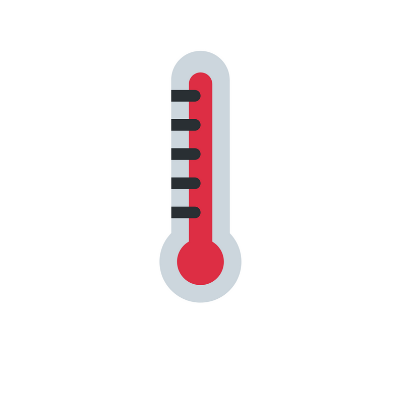How to deal with anger
How to deal with anger
Anger is a feeling we all experience. There is nothing wrong with feeling angry. It is our response to feeling anger that can cause problems for us.

Anger is a feeling we all experience. It’s an emotional state that comes with thoughts and often physical feelings as well.
Anger can usually be summed up with the expression ‘that’s not fair’. It comes with a sense of injustice. Maybe you feel you or someone else has been treated unfairly. Anger can be a great motivator, prompting us to make changes and tackle inequalities.
The past year has been challenging for many, and can cause a lot of anger. We often feel angry when we have no control over things. We can feel stressed, or under a lot of pressure.
There is nothing wrong with feeling angry. It is our response to feeling anger that can cause problems for us.
Why we feel angry
Feeling angry often comes with physical sensations. Things like our heart beating faster, feeling hot or clenching our fists.
Anger can be difficult to express and manage. Particularly because a lot of us have been taught not to show it. We can be made feel guilty or ashamed about being angry, despite it being a necessary emotion.
This is unfair as well, and can further sustain feelings of anger. Until we learn how to manage it a different way, this keeps going in a circle.
We learn a lot about how to express emotions from our family. Think about the habits you may have picked up over the years. Do people close to you release anger in a healthy way?
What we’re told about anger
We grow up learning myths about anger that are quite unhelpful. On TV, movies and games, we see people dealing with anger in an aggressive way. They lash out, throw tantrums and get violent.
On the other extreme, many of us are taught we should hold in our anger rather than express it.
Bottling up feelings like this can be destructive. It allows people to cross a boundary without us letting them know.
How we express anger
Sometimes we express anger in ways that are confusing to the people around us.
Imagine after a bad day at work, school or college, you become irritable and take it out on people close to you. Because you feel safe with them, it’s easier to show that anger. It can feel unsafe to show your anger with friends or co-workers.
But the result is raising your voice or slamming doors at home in response to something small. People at home then think your response is unreasonable. The issue is that the anger you feel hasn’t been directed where it should be.
Exercises to manage our response to anger
In Jigsaw, when we work with a young person on their responses to anger, we ask them to think about the consequences. Let’s say, for example, you get angry and smash your phone. The result: you have a broken phone and the thing making you angry probably hasn’t changed.
Another visualisation exercise we try is thinking of anger like a thermometer with gradients going from 1 to 10.
Imagine how you would feel at the different points. At three, four, five – maybe you have a twitchy leg, or a clenched fist. At six, seven eight, nine – imagine how hot and strong that feels. Think how difficult your response gets to manage at this stage.
It’s not wrong to be at ten out of ten anger. It’s just we have little control over our responses when we’re at that point. The aim is to catch the anger rising and keep it at four or five to stay calm.

This animation was developed for us by students in the Institute of Art, Design and Technology in Dún Laoghaire, Co Dublin. It outlines ways to deal with anger.
We all feel anger at different stages. It’s a common emotion but it can be helpful to try different ways to respond to it.
Ways to deal with anger
- Be assertive- Many of us get angry because we don’t speak up or express ourselves. When we are passive like this our feelings get bottled up. Then there’s a risk of these feelings exploding later. The trick is to be assertive instead. This means expressing ourselves and our point of view in a calm way that’s not aggressive. Imagine a seesaw where passive is on one side and aggressive on the other. Assertiveness is the neutral, level middle ground.
- Get better sleep- If you’re not sleeping enough, you’ll have less patience and you will get irritable more easily. Read more about sleep and mental health here.
- Deep breathing- When we feel anger, our body’s physical stress response tends to kick in and our heart rate goes up. When we pause to breathe deeply, it counters our stress response and can make us feel less angry. This might seem simplistic. But try it for 30 seconds and you will feel a difference.
- Count to 100- Give your brain a task to distract it. Count to 100 or count down from 500 in multiples of 7. Doing this along with deep breathing can take the heat out of the reaction you’re feeling
- Walk away- If people are shouting or getting aggressive, leave the room if possible. You can say something like, “I don’t think I’m doing justice to this conversation right now. So I’m going to take a break and come back to you when I’m calmer”.
- Listen to music- Put on headphones and play music for a while. Or go somewhere where you can listen to music out loud. Try dancing and you will feel the anger melt away.
- Get to a quiet place- Head to wherever you feel like you can sit and figure stuff out. Think about why you’re angry and what you could do to solve whatever’s going on.
- Write it out- Take 5 or 10 minutes to write down what you’re mad about. Get your thoughts out and onto the page and you’ll get immediate perspective. This makes it easier to challenge your thoughts and views on the situation.
Remember, you may have very valid reasons for being angry. Getting rid of it is not the aim here.
The trick is to catch anger rising so we can better control how we respond. We are responsible for our reactions to things.


